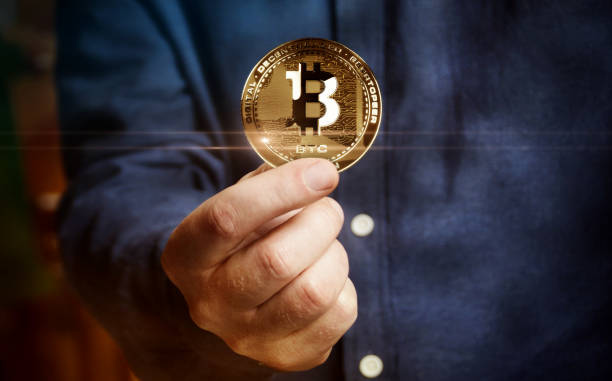How to Buy Bitcoin Safely in Nigeria
Suppose you’re looking to buy Bitcoin in Nigeria without falling prey to scams or security pitfalls. This guide will take you through each step of the process, from selecting a reliable cryptocurrency exchange to setting up your wallet and securing your coins, so you can make informed investment decisions with confidence.
Why Invest in Bitcoin?
Bitcoin has emerged as “digital gold”: scarce, borderless, and resistant to local inflation. In Nigeria where the naira can lose value rapidly, Bitcoin offers a hedge and opens doors to global finance. Plus, sending remittances via Bitcoin is often quicker and cheaper than traditional channels.
Hedging Against Inflation
- Naira volatility: With persistent inflation, Bitcoin can preserve purchasing power.
- Decentralization: No single authority controls your assets.
Global Opportunities
- Remittances: Send value across borders in minutes.
- Access to new markets: Trade and invest beyond local limitations.
Understanding the Risks
Investing in Bitcoin is not all sunshine and rainbows. Be ready for:
- Price swings: Expect 10 to 20 percent moves in a single day.
- Regulatory shifts: Nigerian policies can change and impact platforms.
- Security threats: Phishing, hacks, and SIM swaps target crypto users.
Choosing a Reliable Exchange or App
Your choice of platform is critical. You can opt for a centralized exchange (CEX), a peer-to-peer (P2P) marketplace, or use the iPayBTC app.
Centralized Exchanges (CEX)
Luno
- Regulated by Nigeria’s SEC
- Bank transfers in NGN
- Beginner-friendly with 2FA and cold storage
Quidax
- Paystack and bank transfers for deposits
- Low fees and a slick mobile app
- Majority of funds held in cold wallets
Binance
- NGN pairs plus global liquidity
- P2P marketplace for direct trades
- Advanced features for power users
iPayBTC App
- Designed specifically for Nigerians
- Instant NGN to BTC purchases in-app
- Integrated wallet and seamless bank transfers
- Built-in security features like 2FA and PIN protection
Peer-to-Peer (P2P) Platforms
Platforms such as Binance P2P, Paxful, and LocalBitcoins connect you directly with sellers. Funds stay in escrow until both parties confirm the transaction. Always:
- Check seller ratings and reviews.
- Use trusted payment methods.
- Never release escrow before confirmation.
Creating a Secure Wallet
Once you’ve purchased Bitcoin, move it off any platform into a wallet you control. Exchanges can be hacked so self-custody is safer.
Types of Wallets
Hardware Wallets
Devices like Ledger or Trezor store private keys offline and are immune to online hacks. You must keep the device physically safe.
Software Wallets
Apps such as Trust Wallet or Electrum run on your phone or desktop. They are free and convenient but vulnerable to malware.
Registering and Verifying Your Account
- Sign up: Use a strong, unique password.
- KYC: Upload a valid ID and a selfie in good light.
- Approval: Verification can take minutes to days.
Completing KYC often unlocks higher deposit and withdrawal limits.
Enabling Two-Factor Authentication (2FA)
Always use an authenticator app like Google Authenticator or Authy.
- Scan the exchange’s QR code
- Save backup codes offline
- Test a login to confirm it works
Placing Your First Order
- On a CEX or iPayBTC: Select NGN to BTC, enter the amount, and confirm.
- On P2P: Filter sellers by price, payment method, and reputation; then initiate trade.
Market vs. Limit Orders
- Market orders: Instant execution at the current price—great for beginners.
- Limit orders: Set your target price—may save money but might not fill.
Withdrawing and Storing Your Bitcoin Securely
- Initiate withdrawal: Enter your wallet address (double-check every character)
- Send a test amount: e.g. 0.0001 BTC
- Transfer remainder: Once confirmed, send your full balance
Check confirmations on a block explorer like blockchain.com.
Common Scams and How to Avoid Them
- Phishing sites: Bookmark official URLs; never click unsolicited links.
- Fake support agents: Official support will not DM first—use verified channels.
- Pump-and-dump groups: Promises of 10× gains are red flags.
- Impersonators: Verify social media handles carefully.
- Love scams: Never send BTC to strangers claiming affection.
Tips for Long-Term Security
- Use hardware wallets for large holdings
- Consider multi-sig and passphrase-protected cold storage
- Back up seed phrases in separate, secure locations
- Keep devices updated and avoid public Wi-Fi
- Rotate passwords and stay informed via reputable crypto communities
Conclusion
Buying Bitcoin safely in Nigeria comes down to selecting trusted platforms (including the iPayBTC app), securing your account with 2FA, and moving coins into wallets you control. Follow this step-by-step guide and you’ll navigate the crypto world with peace of mind. Happy investing!
FAQs
Q1: Do I need a BVN to buy Bitcoin in Nigeria?
Most exchanges and the iPayBTC app require a BVN-linked bank account for NGN deposits and withdrawals.
Q2: Can I buy Bitcoin with a debit card?
Some platforms allow debit-card purchases, but fees tend to be higher than bank transfers or iPayBTC.
Q3: How much are withdrawal fees?
Fees vary based on network congestion; platforms display them before confirmation.
Q4: Is buying Bitcoin legal in Nigeria?
While banks were restricted from servicing crypto platforms in 2021, P2P and apps like iPayBTC remain accessible. Always watch for regulatory updates.
Q5: What’s the minimum amount I can buy?
Minimums vary by platform—often as low as ₦1,000 or 0.0001 BTC.
Stay in touch to get more updates & news on Ancientartz!





